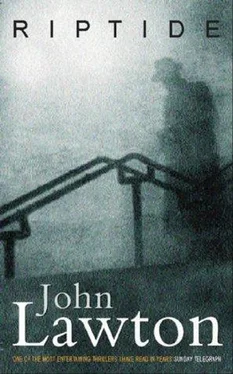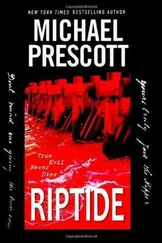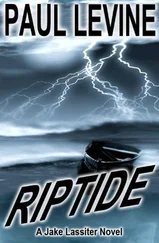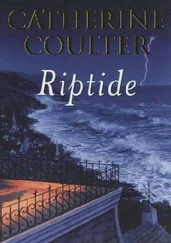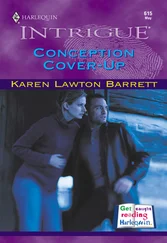Russia has an inordinate capacity for suffering-to have pain inflicted, to absorb it and to transmute it. Where else lies the origin of the inextinguishable myth of the great Russian mission to the West? It is in Tolstoy, born in the blood and snow of the long march he depicted in War and Peace, it is in the suffering of those lamentable brothers, the Karamazovs, there is more than a hint of it in the work of my fellow exile Berdyaev, and it informed every jot and missive of my father’s work in those interminable letters he wrote to newspapers other than my own-we were not, alas, the paper of record in his eyes-and it is, ironically, at the heart of the late Mr Trotsky’s opposition to Socialism In One Country. Russia suffers and in her suffering lie all our fates. Russia is the soul of Europe.
Some of the trouble of my native land I have seen at first hand-or, to be exact, heard and felt. When I was twenty-two I was a street away and heard the blast when Alexander II was assassinated. According to my father I was closer still when an earlier attempt was made upon the Tsar’s life in the 1860s, but being six years old at the time I have little memory of it. And, when I was forty-one a second cousin on my mother’s side shot and killed Nicholas II’s Secretary of the Interior. In each case, and emphatically if metaphorically in the last, I was, it would seem, too close for comfort. So are we all. Whatever happens now in Russia will affect us all. We are but a street away from the explosion. To go on telling ourselves, as we did in the thirties, that the Soviet Union is godless and Marxist and as such the natural enemy of both mankind and democracy would be nothing short of folly. Like it or not we have a new ally. And I am here to tell you all that it is time to stand by our new ally.
Alexei Troy
‘Bloody hell,’ said Reggie. ‘I mean to say it’s a bit steep. New ally? Talk about jumping the gun!’
Churchill took out his cigar, trailing spittle. ‘He knows,’ he said.
‘Surely, Prime Minister, he’s just guessing. He’s picked up on the speculation-he’s a pretty poor excuse for a press baron if he didn’t-and he’s heard what everybody’s heard about troop movements in Poland…’
‘He knows,’ Churchill said again. ‘Look closely at the final paragraph. Lift out the figures he gives, the odd ages he says he was at such and such an atrocity.’
Reggie scanned the paper, wondering what he’d missed. As he found them, eyes down, scarcely daring to look up, he could hear Churchill growling out each number in turn.
‘Twenty-two, six, forty-one. June 22 nd1941. The only thing he’s missed out is the time, but since we all know that Hitler calls at the same time as the Metropolitan Police making a raid, he need hardly spell out the word “dawn”.’
The truth dawned on Reggie. ‘Oh bugger,’ he said softly.
‘Oh bugger,’ said Churchill back to him. ‘I looked him up in Who’s Who. Alex Troy’s propensity for being coy with the truth about himself notwithstanding, he gives his birth date as 1862-which would make him nineteen when the old Tsar was assassinated, not twenty-two. He knows, and he’s letting me know that he knows. I’ve known him for thirty years or more. In all that time he has only ever signed about half a dozen editorials. When he signs one it’s a mark of the importance he attaches to the issue and it inevitably means he’s talking to just one person-the editorial becomes an open letter. All that’s missing is “Dear Winston”. He came to the briefing I gave only yesterday. A rare enough appearance in itself. He heard what I had to say, and then he went home and wrote his “Dear Winston” letter.’
Churchill uttered the words ‘Dear Winston’ with a dash of sarcasm, much as Americans used the phrase ‘Dear John’.
‘Prime Minister. I’m most frightfully sorry. But I’ve no idea how he found out.’
‘The American?’ McKendrick asked.
‘He’s been sent home, as requested. And he was as green about England as it’s possible to be. I shouldn’t think he’d even heard of Alex Troy. He’d be as likely to write to The Times as anything. The obvious but naive gesture. He was nothing if not naive.’
Churchill waved the argument away with his cigar hand, a trail of pungent smoke filling the air.
‘We’re not here to dissect the corpse, Reggie. We’re here to decide what needs to be done.’
Reggie was silent in the face of this. McKendrick’s look told him to stay that way.
Churchill inhaled deeply, blew a smoke ring or two at the ceiling.
‘And I think there is only one thing to be done.’
He blew another smoke ring, head well back puffing out a perfect O. Reggie watched it float up to the ceiling, feeling as though he was on the carpet in front of the world’s most eccentric headmaster^.
‘We shall take Alex at his word. We shall tell Stalin just one more time. He won’t believe us, but we shall tell him just the same.’
When Troy got back to his office in Scotland Yard, a tall, impossibly young, young man with the palest blue eyes he’d ever seen was snogging a uniformed WPC in front of his desk.
The woman blushed red, smoothed down her skirt and dashed past him. The man straightened his old Etonian tie, stuck out his hand, a smile on his lips, as though nothing had happened and said, ‘Jack Wildeve. You must be Sergeant Troy.’
Troy did not take the hand so proffered. Silently he cursed Onions that his revenge should be to stick him with an English public school, totty-chasing twerp. He was going to hate this bloke. He knew it in his bones.
Over breakfast in the Avis Hotel, Lisbon, waiting for the Pan Am Transatlantic Clipper, Cal whispered to Mrs Cormack, as he did every morning, ‘I love you. Did I tell you that today?’ Kitty said nothing.
In the month or more that Cal had been gone Corporal Tosca systematically went through the entire contents of his Zurich office a few pages at a time, noting anything that she thought important, whether she understood it or not. When it was clear that Cal would not be returning, she sent a coded message to Moscow, on June 9 th: ‘Stahl is US agent. Not dead. Probably escaped to GB. US and GB very anxious to find him. Can only conclude vital information at stake. No idea what. Cormack posted to Washington. What am I supposed to do now? Any ideas?
On the afternoon of the same day Reggie’s number two, Charlie Leigh-Hunt, used a dead letter box in London to send a message to his controller at the Soviet Embassy: ‘Hess mission authorised. H not mad. GB were expecting him. GB pressed him to confirm invasion of USSR. H did not. Talked incessantly of “common cause
against the Bolshevik menace”. Conclude GB now thinks invasion imminent.’
Churchill issued his last warning on June 10 th.
When this news reached Joseph Vissarionovich Stalin, he did not wish to know. He had just dispatched the Artillery Corps tractors eastward, away from the front line, to help with the grain harvest-besides, he’d been warned already. Not only by the British Ambassador Sir Stafford Cripps, but also by Count Werner von Schulenberg, the Reich ambassador to Moscow, who had risked treason to warn the Soviet Union-nor would his treason be the last.
On June 18 th, a Wednesday, Private Gunther Bruhns, recently demoted and posted to the Waffen SS on the Eastern Front by Heydrich for one cheeky remark too far, fearing that there was yet worse to come, chose a rash means of escape. He crossed the German lines into the Soviet Union, offering to trade information for sanctuary-his father had been a good communist and he’d always had some sympathy for the cause himself.
Читать дальше
